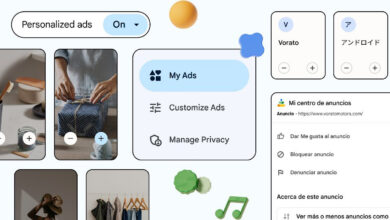What Is Cost Per Click (CPC)?

CPC (Cost Per Click) is a common term used in paid advertising.
It is sometimes referred to as “pay-per-click”.
This comprehensive guide will delve into the basics of CPC, why it’s important, and when to use it.
What is CPC?
CPC is a bid model that determines how much advertisers pay for their ads.
Technical definition of CPC by The Google:
Cost-per-click (CPC) bidding means that you pay for every click on your ads.
How do you calculate CPC?
To calculate the cost per click, you take the total ad cost divided by the number of clicks received.
For example, if your campaign spends $500 per day and receives 100 clicks, your calculated CPC will be $5.00.
CPC bidding allows advertisers to set a maximum cost-per-click (CPC) from the campaign bid strategy level or down to the individual keyword level.
However, setting a maximum cost-per-click (CPC) does not mean paying that every time. The final amount charged for a click is called the actual cost per click.
In each ad auction, you only pay the minimum amount required to beat the ad rank of the competitor immediately below you.
Why is CPC important?
CPC is important for many reasons.
The CPC metric is a useful KPI to help understand:
- Relative return on ad spend (return on ad spend) Based on your budget and CPC.
- Plan and forecast estimated traffic based on your budget.
- competitive insights On how your average CPC compares to the market.
- for you Relative advertising strength.
As you can see, CPC provides more insights than just the number of clicks you get for your budget.
In terms of ROAS, understanding CPC can help guide more accurate forecasts.
For example, if your CPC is high but your daily budget is low, those clicks to your website will have to work harder to achieve your target ROAS.
This means that the website (or app) user experience needs to be fully optimized to encourage as many sales as possible.
Another reason CPC is important? It helps you understand how competitive you are in keyword auctions.
If your ads are consistently receiving a low CTR, the main reason may be that your maximum CPC is lower than your competitors.
CPC is also one of the factors that determine ad strength and ad rank.
If you have excellent ad copy and an easy user experience, but your ad CTR is low, you can narrow down the issue to your maximum CPC.
So, should your CPC metric be your marketing campaign’s key performance indicator (KPI)? Mostly not.
It’s a good indicator of current competition and future performance, but other KPIs are necessary to determine campaign success.
What is a good CPC?
The easy way to answer this question is: it depends.
Many factors contribute to understanding what a good CPC should be.
Elements that go into determining the ideal CPC should include:
- industry.
- Device type.
- Keyword match type.
- competition.
- Branding keywords versus non-branding keywords.
- Ad Rank.
Let’s tackle the first factor: industry. Different industries have shown to have vastly different CPCs.
Based on early Study 2022 Of Wordstream’s LOCALiQ, lawyers and legal services boasted the highest average CPC of $8.67.
The real estate industry was on the lower end of the spectrum, with an average CPC of $1.36.
Competition (or lack thereof) helps determine a good CPC.
Typically, the more competition for a keyword, the higher the CPC. You might also expect your average CPC to be lower if there is less competition.
Another item to consider when asking about a good CPC is, “What is the nature of your target keyword?”
If someone is searching for your brand, your CPC should be much lower than non-branded keywords.
If you’re bidding based on your brand terms, your ad rank is higher for those terms. A higher ad rank helps contribute to a lower cost-per-click (CPC).
Non-branded keywords have a higher CPC due to their competitive nature.
As mentioned above, when the competition is high, the CPC for these phrases is also naturally higher.
Ad Rank is a vital factor that contributes to getting a good CPC.
Your bid strategy and maximum cost-per-click (CPC) are factors that contribute to your ad ranking result.
In short, a good CPC depends largely on the industry, competitiveness and ad rank of your target keywords.
What advertising platforms use cost-per-click (CPC) bids?
Most advertising platforms use CPC bids.
The most popular platforms are search platforms such as Google and Microsoft Ads.
Although CPC bidding is available on these platforms, they offer automatic bid strategies that include maximum CPC bidding.
Automated bid strategies help take the hard work out of managing individual keyword bids.
Bidding strategies such as Maximize Clicks or Enhanced CPC allow you to set a maximum CPC.
Allowing platforms to use their own algorithm allows you to automatically increase or decrease bids based on the likelihood of an individual clicking or converting.
Several social advertising platforms that allow CPC bidding include:
- Facebook.
- pinterest.
- snap chat.
- Tik Tok.
- Twitter.
- linkedin.
- DSPs.
So, no matter which ad platform you are looking to test, it will likely have CPC bidding available.
What is CPC and CPM?
Apart from cost-per-click (CPC) bids, CPM bids are another standard model in advertising.
CPM bidding is a model where advertisers pay for every 1,000 impressions of their ads.
Simply:
- CPCPay per click.
- CPMPay per thousand impressions.
The intent of CPM bidding is different from CPC bidding because it focuses on views and impressions.
When choosing CPM bidding, the advertiser focuses more on ad reach than on traffic.
CPM bids are usually lower than some CPC bids because they are mainly used for ad networks or for broad reach on social platforms.
CPM bidding is a cost-effective way to reach a large audience while keeping costs low.
So, when should you use CPM bidding instead of CPC bidding?
If the main goal of the campaign is awareness, CPM bidding would be a good choice.
conclusion
Understanding your CPC bids and what affects them is vital to the success of your PPC campaign.
Additionally, while manual CPC bidding is still available, try testing automated bid strategies to achieve better efficiencies while still managing costs.
More resources:
- Top 6 KPIs you should be tracking
- How to develop your own Pay Per Click (PPC) strategy
- PPC 101: A Complete Guide to the Fundamentals of Pay-Per-Click Marketing
Featured image: Cast Of Thousands / Shutterstock




